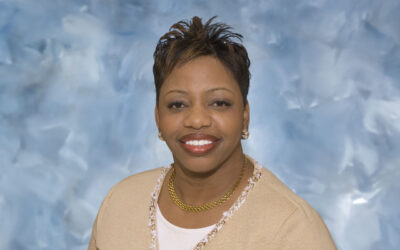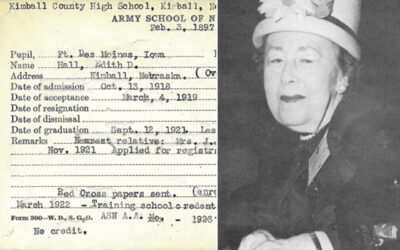By Matt Skoufalos
As an operating room nurse, Susan Mastrangelo is quite familiar with the process of harvesting donor organs. At Lourdes Medical Center of Burlington County in Willingboro, New Jersey, where she works, doctors partner closely with the nonprofit Gift of Life to find suitable matches for patients awaiting a transplant.
But in Mastrangelo’s experience, and that of many of her colleagues, “all we see is the organs taken away,” she said. “We never know where they’re going to end up, or the process on the other end.”
This winter, however, Mastrangelo got a first-hand glimpse into the other side of things as her daughter, Danielle, underwent a double lung transplant to correct complications from cystic fibrosis.
Diagnosed with the disease at birth, Danielle received follow-up care at Children’s Hospital of Philadelphia (CHOP) throughout her childhood, and was transitioned over to the University of Pennsylvania Hospital as an adult. In recent years, doctors had been pushing for the 28-year-old to undergo a lung transplant, and the birth of her own daughter two years ago accelerated that timeline.
“They worked her up in June 2018, and she was on the transplant list for a month,” Mastrangelo said. “If this family had not signed up to donate their member’s organs, I don’t know where my daughter would be.”
There was one false start to the process – surgeons passed on a pair of lungs that had been identified as a likely match for Danielle – but a week later, they found a set they felt was the right fit. She went into the hospital December 12, had the surgery January 5, and by mid-February, was home, ready to return to her regular routine.
“It’s amazing,” Mastrangelo said. “[As nurses], all we see are the organs; [this time], I actually got to see where they went and how it affected so many lives.”
Danielle, who had been accustomed to breathing with continuous oxygen, had to learn how to do so independently. With the help of the respiratory therapists, physicians, and the nurse practitioners who cared for her, she’s made rapid progress, Mastrangelo said.
“It’s amazing,” her mother said. “She’s doing fantastic. She’s up walking around, not using [supplementary] oxygen. She’s living a normal life that she has not had for five years.”

Mastrangelo is used to caring for people. She entered the nursing profession 35 years ago, when her father was ill with a rare disease. The care and compassion with which his nurses handled him touched her, and it didn’t hurt to have a sister, cousin, and niece who all are in the profession as well.
“I like to help people, and I don’t have the patience to be a teacher,” Mastrangelo said. “Once I started, I really found out this is what I loved. I can’t imagine doing anything else.”
Nursing was a different career entirely in 1984; one far less technology-oriented with a focus on bedside care. Mastrangelo earned her associate’s degree at Mercer Medical Center in Trenton, New Jersey, later completed a critical care certificate, and landed in the ICU for 15 years.
 About 10 years ago, Mastrangelo was invited to rotate into the OR, and agreed that it was time for a change. The duties were totally different from what she’d done before, and Mastrangelo found the switch-up was a welcome one. Five years later, she completed a bachelor’s degree and earned her CNOR certification.
About 10 years ago, Mastrangelo was invited to rotate into the OR, and agreed that it was time for a change. The duties were totally different from what she’d done before, and Mastrangelo found the switch-up was a welcome one. Five years later, she completed a bachelor’s degree and earned her CNOR certification.
“With what nurses do, I think it’s important that they switch,” Mastrangelo said. “The priorities are different now; there just isn’t the staff ability to do the things we used to do at bedside. Patients are sicker, requiring more nurses sometimes, and there just isn’t the amount of nurses that there used to be.”
There was a national nursing shortage when Mastrangelo was in nursing school, and another is anticipated within the next few years. Switching concentrations is another way of filling in gaps, while also assuring career longevity for nurses who might be in danger of suffering from burnout.
What Mastrangelo was most impressed by was the team dynamic of the OR. It’s not only a key aspect of the day-to-day responsibilities of her job, but one that was reinforced when it was time to care for Danielle.
“This OR group is incredible,” she said. “We could not have done what we did [for my daughter] without the support of the people here. They picked up my shifts; I spoke to my supervisor, and everything was taken care of until I was ready to get back to work.”
“I would do the same for somebody else,” Mastrangelo said. “It’s totally a team effort. They had to work a little harder, and my daughter wouldn’t be here if they didn’t do that. I would have had to worry about being here or lose my job, and I didn’t.”
As a career, Mastrangelo is very satisfied with her chosen profession. The work is “by no means easy,” but rewarding in novel and persistent ways.
“It’s a good, fulfilling job to have,” she said, “but you have to have a certain mentality for it too. You have to realize every patient’s different. You have to work as a team.”
By supporting her when she needed it most, Mastrangelo’s team gave her a freedom from worry. With her daughter gaining independence and in good health, Mastrangelo is now able to focus more on her granddaughter, Carson – and maybe develop some hobbies.
“I’m going to have to get something to do now that I don’t have to take care of my daughter anymore,” she laughed. “Maybe I’ll take up golf.”










